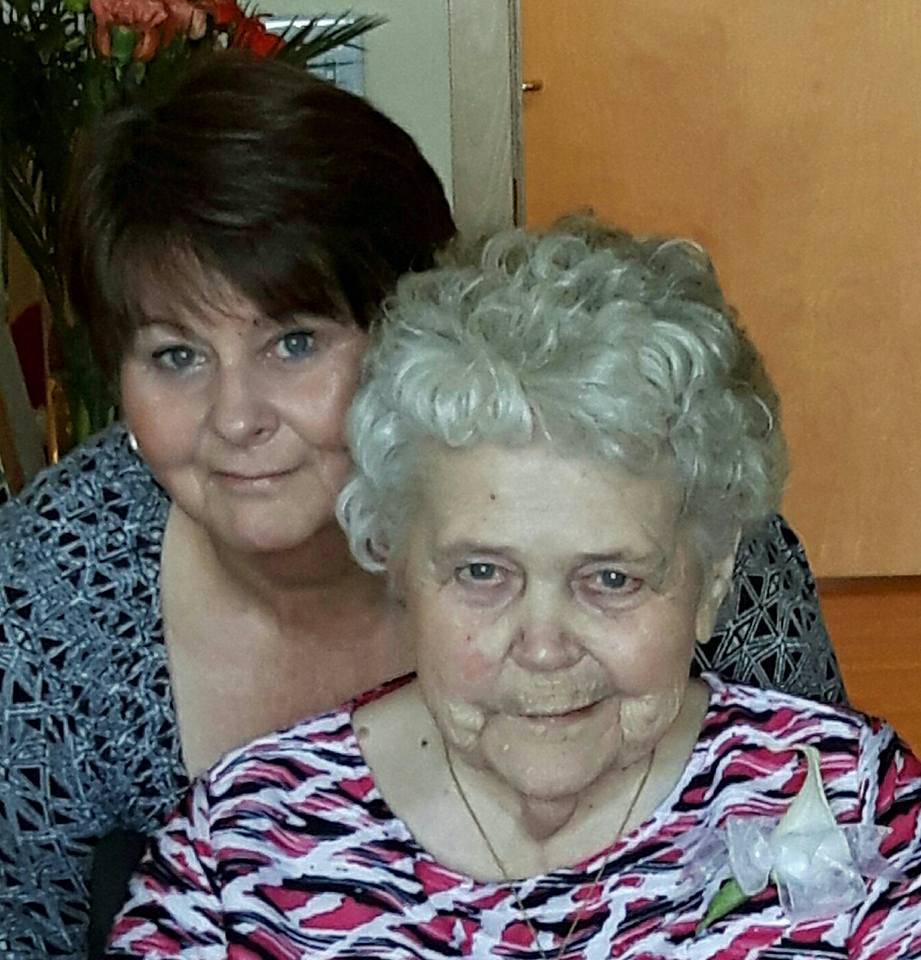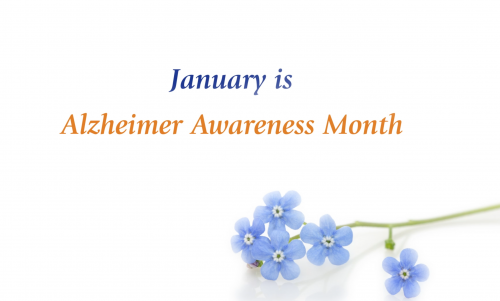Cathy
My mother was officially diagnosed with dementia in the summer of 2014.
Prior to her diagnosis, our family had noticed her memory declining, and she was starting to display small changes in her behaviour. Although we were expecting the diagnosis, it was still very hard to take—we were worried that her dementia could progress quickly and that before too long she would not be able to recognize us.
We were very lucky to have already been receiving regular support from Home Care to assist mom with her personal cares. They soon offered us respite services that allowed dad to have some time away from home during the day when none of us were available. Our sister Lynn was able to move in with mom and dad. Having her there at night was a great support to all of us. Mom’s sister lives next door and she was also a great support staying with mom one afternoon a week to allow dad another opportunity to get a break from his role as mom’s primary caregiver. I went up every evening and assisted mom with her evening cares. Our brothers were always available to help dad out around the house and to provide travel to appointments when needed. We have some terrific partners and children who we can always count on to be there whenever they are needed. Even though it is mom who received the diagnosis, our whole family is living the journey with her.
I believe that there is a better understanding of dementia now than in the past, but there’s still more that needs to be done. I know of some amazing, compassionate caregivers who would benefit from more education on how to interact with dementia patients. A lot of the time their actions are a result of the stigmas associated with dementia. They don’t understand the disease; therefore, they don’t know the best practices to use when providing care.
This disease can and does affect people from all walks of life. Your background, education and status doesn’t matter. There have been some prominent people who have gone public with their diagnosis. These declarations help to “normalize” the disease and brings to light that none of us are immune.
Media

HERE ARE MY TIPS TO HELP YOU UNDERSTAND:
- Remember the person. Each person you’re caring for is a much-loved person who deserves to be treated with dignity and respect.
- Be patient and understanding. Allow people living with dementia the time they need to process what you’re saying. Sometimes there is a delay from when they hear what you’re saying to when they are able to process the information and respond.
- Allow them independence. Even though it may take more time, please don’t do things for them that they are still able to do for themselves. Doing these small tasks themselves allows them to feel that they still have some control over their lives.
- Respect their presence.Don’t talk about them as if they are not in the room.
- Share positive stories with family. We love hearing them. Not being able to be there as often as we would like is hard. Don’t ever take our absence as a sign that we don’t care—we would like nothing more than to be with them all the time.
- Give them choices to make. Whenever possible, we allow mom to have some choice with her clothes, meals, and activities.
- Don’t assume that it’s always dementia. The person’s behaviour may be due to another issue. A dead battery in a hearing aid, for example, can cause the person to be exceptionally quiet. Or an ill-fitted denture can cause discomfort when eating, so consider this if their appetite changes suddenly.
- PLEASE DON’T TREAT THEM LIKE CHILDREN —They may appear to be cuddling a doll, but in their mind, they are nurturing a child they love. Regardless of what you see, THEY ARE ADULTS WHO DESERVE TO BE TREATED WITH RESPECT AND DIGNITY.
-
More Stories
-

Brenda
2018
Prince Edward Island
-

Dan
2019
Prince Edward Island
-

Mary
2020
Prince Edward Island
-

Our Videos
2020
Prince Edward Island

Comments
We may use your information in order to track your relationship with us and our site(s). We do NOT share your information with third parties.